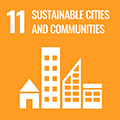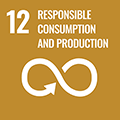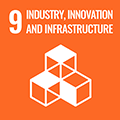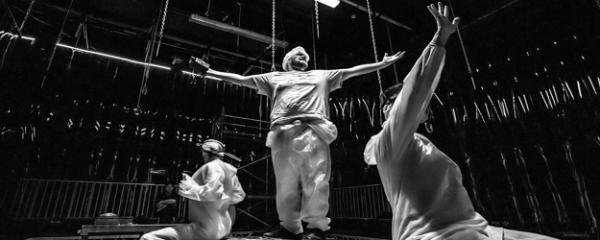At Queen’s University Belfast, research at the Sonic Arts Research Centre (SARC) is transforming how people create, experience, and share music. By merging art, technology, and inclusive design, this work is redefining what accessibility means in the creative industries.
Through the pioneering initiative Performance without Barriers, a collaboration between Queen’s and the charity Drake Music NI, researchers and artists co-design digital instruments and immersive experiences with disabled musicians. Using artificial intelligence, virtual reality, and participatory design, this research ensures that everyone, regardless of physical ability, can engage fully in the joy and creativity of music-making.
Tune in now: Research to Reality: Roundtables
Join us for an engaging roundtable discussion featuring four academics from Queen's University Belfast: Lucy Baxter, Professor Paul Best, Professor Franziska Schroeder and Professor Roger Woods. Hosted by former BBC journalist Mark Devenport, this conversation delves into the overarching theme of "Using Emerging Technologies to Improve Lives."
Research Challenge
Bridging the Gap Between Ability and Expression
Traditional musical instruments and performance technologies have often been designed for able-bodied musicians, unintentionally excluding others from creative participation. The challenge for researchers at Queen’s was to reimagine how musical tools and performances could be designed to promote inclusivity and equity from the outset.
Beyond accessibility, the research addresses the ethics of artificial intelligence and the potential biases embedded in creative technologies. By exploring how systems interpret movement, gesture, and sound, the team is helping to shape more representative, human-centred approaches to technology that reflect diverse ways of making and experiencing music.
Our Approach
Innovating Through Collaboration
Based at Queen’s Centre for Interdisciplinary Research in Sound and Music, the Performance without Barriers team brings together expertise in music performance, disability led design, practice research, and engineering, to develop new forms of inclusive music-making.
Under the leadership of Professor Franziska Schroeder, a saxophonist and digital innovator, the research explores how technology can extend human creativity rather than constrain it. Over more than a decade, Schroeder and her collaborators have co-developed bespoke digital instruments that respond to the unique gestures and expressions of disabled musicians.
Her work on embodied artificial intelligence investigates how intelligent systems can collaborate musically with humans, enabling improvisations that feel intuitive and alive. Schroeder has also led pioneering telematic performances that connect artists in real time across continents, transcending geographical and physical boundaries. One such performance was broadcast from Queen’s to the United Nations Headquarters as a concert for peace, demonstrating the global potential of inclusive digital arts.
“Accessibility isn’t a final step, or some kind of afterthought— it’s where meaningful design and creativity begins. When we create with people, not just on their behalf, we make space for new ideas, new voices, and more honest forms of expression.”
- Professor Franziska Schroeder
What impact did it make?
Changing How the World Thinks About Music and Inclusion
This research has changed how the world thinks about music and inclusion. Hundreds of disabled musicians have performed using tools and systems developed through Performance without Barriers, with many taking the stage for the first time. Partner organisations, including Drake Music NI, have adopted the co-design methodologies developed at Queen’s as standard practice, embedding inclusivity in their long-term operations.
Inclusive design principles are now embedded in teaching at SARC, ensuring that future technologists and artists prioritise accessibility, ethics, and empathy in their work. Professor Schroeder’s leadership has been recognised internationally, earning the Vice-Chancellor’s Prize for Research Innovation at Queen’s and inspiring global collaborations across the arts and technology sectors.
Our impact
Impact related to the UN Sustainable Development Goals
Learn more about Queen’s University’s commitment to nurturing a culture of sustainability and achieving the Sustainable Development Goals (SDGs) through research and education.












